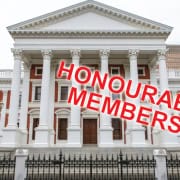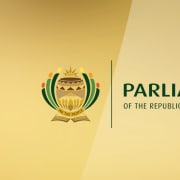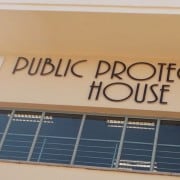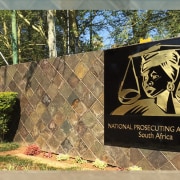|
Getting your Trinity Audio player ready...
|
By Thato Mahlangu
Justice for some whistle-blowers seems like an unlikely dream. As we marked World Whistle-blower Day on 23 June 2020, one of our own is in pain in a hospital, in the Eastern Cape, after suffering years of abuse at the hands of police while fighting for genuine concerns which have been raised by a mining-affected community in that province.
The whistle-blower told Corruption Watch (CW) on Thursday that there was little to celebrate on 23 June, as many men and women who risk their lives and livelihoods continue to suffer police brutality, and are sidelined by mining companies who sign big deals with corrupt government officials and traditional leaders, leaving communities even poorer while they watch resources being stolen from the land of their ancestors.
There is little to be enjoyed by a man like him, lying in a hospital bed because of trauma that was inflicted during service delivery protests in Ndakeni, in the Eastern Cape last year. But he still lives – then-ANC national secretary-general Sindiso Magaqa went down in a hail of bullets after speaking out about corruption in the province. Magaqa died a hero in the eyes of many people – but at what expense?
Was his death worth it? Has anything changed in that province? Has the looting of tax-payers’ monies stopped?
He exposed corrupt government officials who were said to have been involved in rampant corruption in the Umzimkhulu municipality. Four men, including the former mayor of Harry Gwala municipality Mluleki Ndobe, were arrested for his murder but convictions have not been successful. That has caused his family great pain, especially his mother who has since become frail and sickly. Justice denied? It could be too early to say but people in the Magaqa family’s situation might easily say so.
Punishment for exposing such corruption for people like Magaqa, Thabiso Zulu and the man I introduced in the first part of this piece is either death or losing a limb. This is not a scare tactic – I’m merely painting an honest picture. It is not easy being brave in a country that seems to care little about whistle-blowers, as we have seen with Zulu’s case. He had written to the office of the Public Protector (PP) seeking assistance with personal protection, but the court found the PP had failed to establish which office was responsible for the protection of someone whose life could be in danger after exposing corruption. The court had ordered the Department of Justice and Constitutional Development to provide Zulu with witness protection and not personal protection as Advocate Busisiwe Mkhwebane had stated in her report.
The Eastern Cape whistle-blower reckons that a significant day such as World Whistle-blowers Day should be used to advocate for solutions to the police situation, as he alleged that the police are in the pockets of corrupt people. He said cases that are brought to Independent Police Investigative Directorate, exposing police officers who take bribes from these corrupt people and those who assault or even take part in the killing of those who report wrongdoing, mysteriously vanish into thin air. Children are robbed of their fathers and mothers’ love and grow up with only an idea of who their parents were – a hero who died fighting for their community.
Just like those who fought against an oppressive apartheid government, the likes of Zulu, Magaqa and the Eastern Cape whistle-blower, who bravely speak out knowing very well what the outcome will be, are now fighting what seems to be a democratic government that should be, in fact, advocating for transparency, accountability, and zero corruption. But instead the current government is accused by communities of being complacent in corruption and crime. We have seen on social and mainstream media reports, since the outbreak of Covid-19, that municipal councilors are accused of stealing food parcels meant for struggling families. Not much has been done to hold these officials accountable.
Whistle-blowers are silenced. The truth is buried. People risk their lives for a better, corrupt-free nation. No hefty penalties or harsh punishments for the most corrupt. Life goes on, it seems.
But in the words of our Eastern Cape whistle-blower, we will continue exposing the corrupt no matter what the cost.








